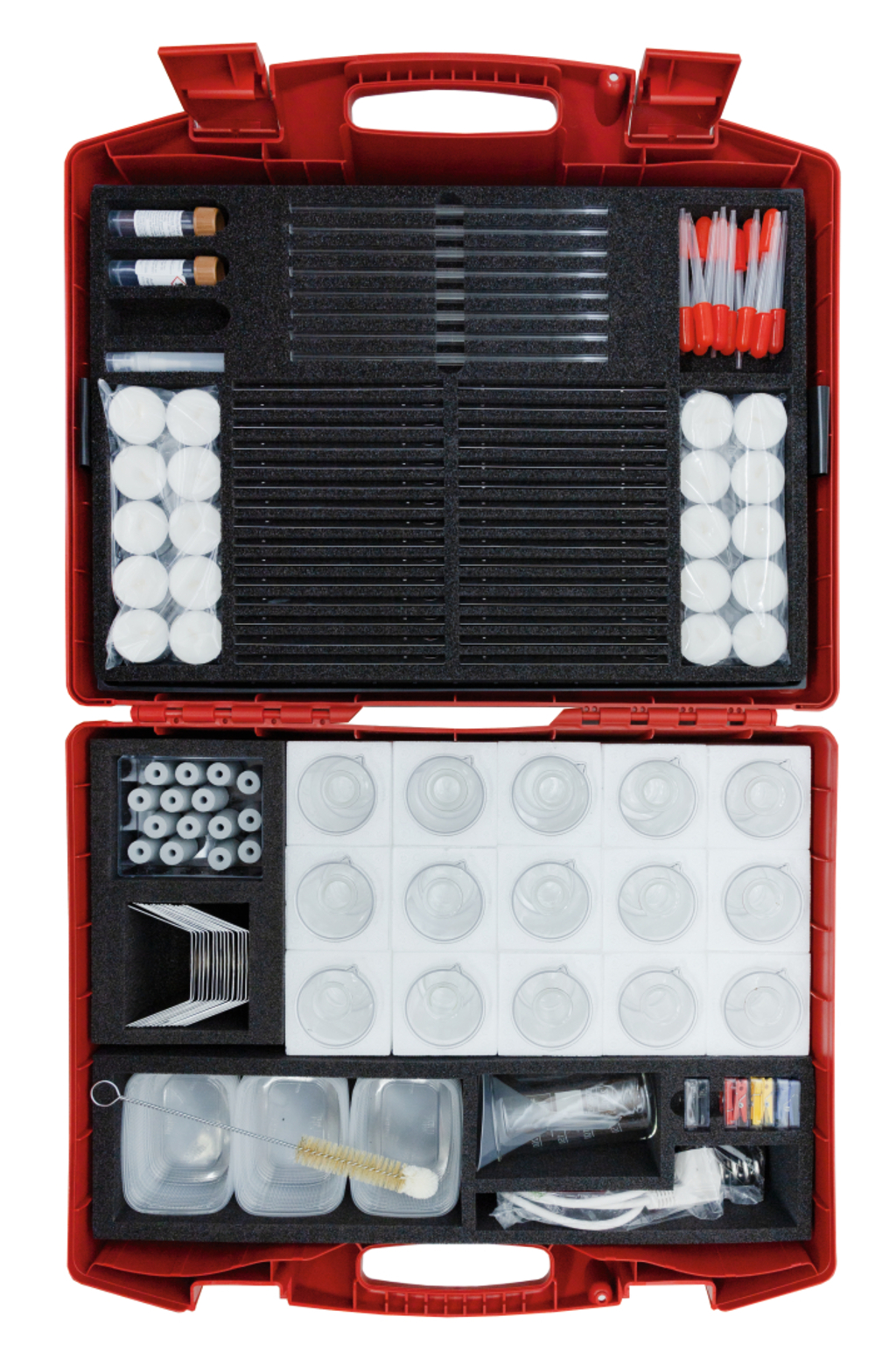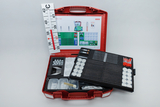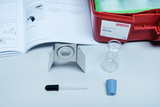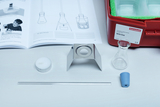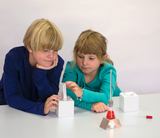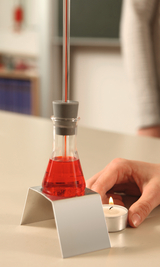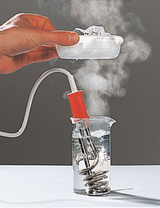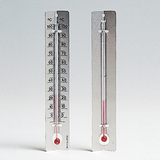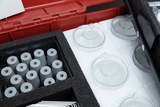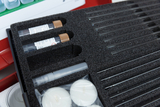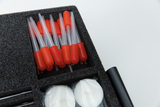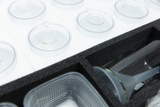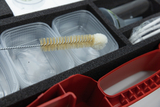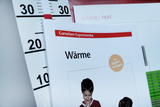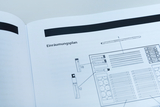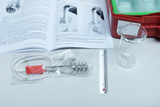Students kit Heat
Thermometers teaching unit.
Children learn how to make a thermometer by themselves, how to use it and how to determine freezing and boiling points of water on
a thermometer without scale.
This way they learn the basic terminology and theories of heat and thermal expansion.
Evaporation and condensation teaching unit.
Children learn to understand the water cycle by finding out what happens when a liquid is converted into a gas and that a gas can be converted back into a liquid.
Age 7-9
Materials for 15 workgroups (for 30 children)
Technical specifications
Size of kit: 540 x 450 x 150 mm
We will shortly provide you with a description of the experiment at this point.
The students should be able to describe the following observations based on their experiments: When the water in the flask was heated, it rose in the glass tube (it expanded); when it was cooled again, it sank (contracted) in the glass tube.
The students should get a feeling for different temperatures.
In the sense of the aforementioned learning objective, the students should be able to make an individual division of the scale and one that corresponds to the consensus of the group and thus be able to measure.
The students measure different temperatures in their environment.
The spirit in the beaker is shown and possibly passed around. The students should try to find out for themselves what the subject is.
The student groups receive the scaleless thermometers and two beakers with water at different temperatures. They take turns holding the thermometers in the glasses and observing them.
The students should be able to use ice and boiling water to mark the melting and boiling points of water on a thermometer without a scale.
We will shortly provide you with a description of the experiment at this point.
The students are asked to formulate a hypothesis about the behavior of a drop of cologne exposed to air.
The students should be able to name different non-potable liquids that are used in their environment.
The students should feel and measure the impression of cooling left by an evaporating liquid.
- 4 × Plastic box, clear, 60/40
- 15 × Thermometer student type,without graduation
- 15 × Stand for 609401
- 15 × Dropping pipette, plastic
- 1 × Immersion heater, 300 W
- 1 × Colouring agent, blue
- 1 × Colouring agent, red for lab use only
- 1 × Demo-Thermometer-Model
- 1 × Atomizer
- 1 × Plastic box 105x90x50 mm
- 1 × Foam insert 1 for 31799, 510x350x40 mm
- 1 × Foam insert 2 for 31799, (5 hollows) 520x135x85 mm
- 1 × Foam insert 3 for 31799, (2 hollows) 222x140x85 mm
- 1 × Storing diagram,int.vers.
- 1 × Tray 510x360x20 mm
- 1 × Plastic case ca.540x450x150 mm
- 1 × Test tube brush
- 1 × Funnel, PP, 75 mmØ
- 15 ×
- 15 ×
- 15 ×
- 20 ×
- 16 ×
- 15 ×
- 15 ×
- 1 ×
- 15 × Thermometer student type –3°C to +103°C
- 15 × Beaker, plastic, 100 ml (graduated)
- 15 × Insulating block for plastic beaker
- 15 × Rubber stopper 24/18 mm with bore 6 mm
- 15 ×
